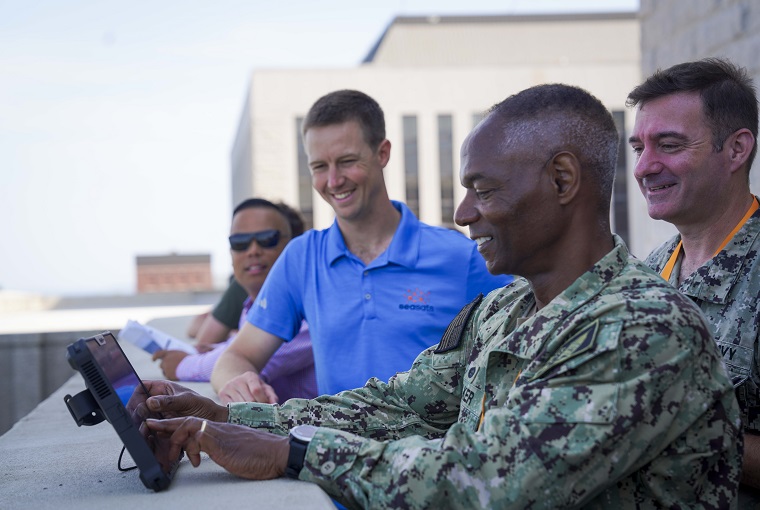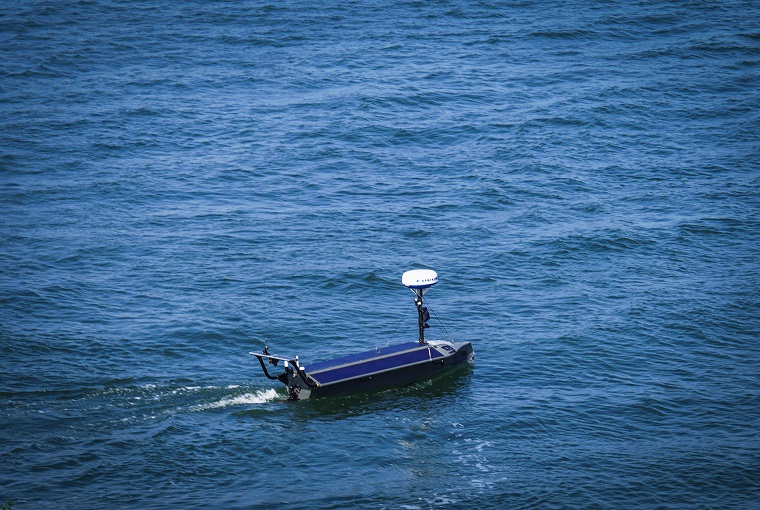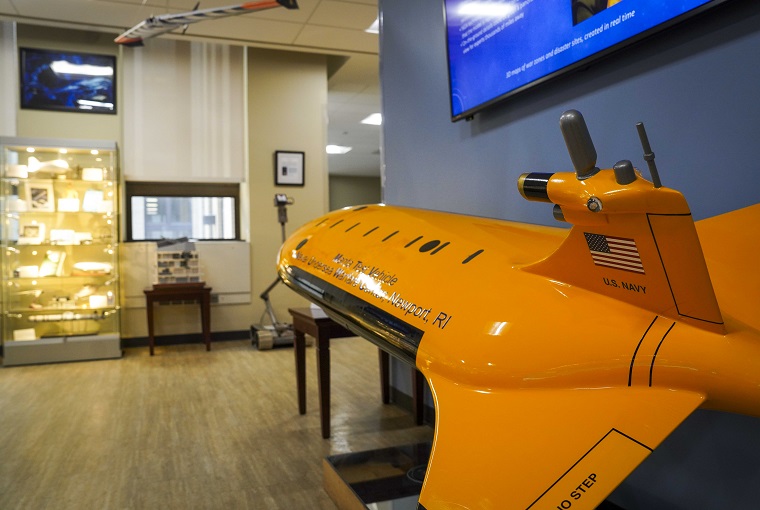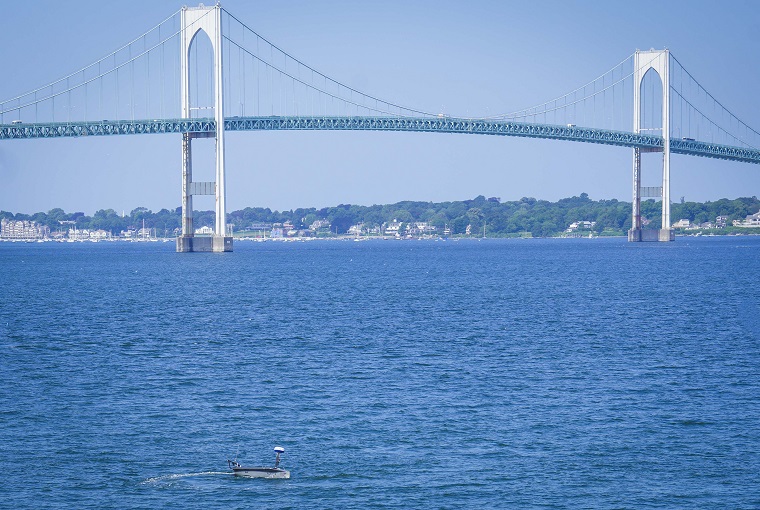U.S. Naval War College Hosts Unmanned Systems Demonstration

NEWPORT, R.I. — Students, staff and faculty at the U.S. Naval War College (NWC) had the opportunity to observe an unmanned surface vehicle (USV) demonstration onboard Naval Station Newport, July 25.
The demonstration was performed by Seasats, a U.S. based developer of autonomous maritime systems, and featured their Lightfish model, a solar powered USV capable of operating security equipment, detecting various forms of marine life and creating detailed hydrographic data. NWC, Naval Station Newport and Naval Undersea Warfare Center (NUWC) Division Newport personnel were able to pilot the vessel through its remote controls.
 Emerging technologies, like unmanned systems, and their applications and effects in current and future warfare, are widely studied throughout NWC’s education and research efforts. The topic is covered in coursework, lecture series, faculty research and wargaming.
Emerging technologies, like unmanned systems, and their applications and effects in current and future warfare, are widely studied throughout NWC’s education and research efforts. The topic is covered in coursework, lecture series, faculty research and wargaming.
One of NWC's elective courses “Unmanned Systems and Conflict in the 21st Century” exposes students to contemporary and projected unmanned and robotic systems in use with the Department of Defense and in the private sector. E.A. Sperry Chair of Unmanned and Robotic Systems Professor John E. Jackson has instructed the course since its inception in 2009.
“The War College recognized very early on that warfare was changing and that these things called ‘robotics’, ‘autonomy’ and ‘Artificial Intelligence (AI)’ were probably going to have a role in future warfighting, so we needed to get in on the ground and start working.” Jackson said.
 Since then, the course has graduated 27 classes, producing leaders who, Jackson says, are driving innovation and adaptation in the field of unmanned systems for the Navy, Joint Force, and partner and allied nations.
Since then, the course has graduated 27 classes, producing leaders who, Jackson says, are driving innovation and adaptation in the field of unmanned systems for the Navy, Joint Force, and partner and allied nations.
“I think the next generation of leaders from our course will be the change advocates for this subject.”
NWC lecture series also regularly provide students with the chance to hear from military, government and industry experts on the impact of emerging technologies on national security. In May of 2024, a delegation from Ukraine’s National Defense University met with NWC faculty for a roundtable discussion and delivered a lecture of opportunity to students on lessons learned from the use of unmanned systems to defend against Russian invasion.
Jackson also hosted another lecture during the 2025 academic year, titled “Robots That Can Fly, Swim and Crawl,” providing an overview on how unmanned systems are changing the way society works, fights and lives in the modern world.
Unmanned systems are also discussed at major academic events such as the annual Future Warfighting Symposium (FWS), which was initiated in 2017 and focuses on the changing character of war, examining topics such as nanotechnology, cyber and biological warfare, robotics and artificial intelligence.
NWC Associate Dean of Academics Tim Schultz believes these lectures and events are critical for the future of the U.S. Navy.
“We have these electives and other programs because there is an increasing competition from China, Russia and other adversaries who are already putting unmanned systems to use- as we have seen during the war in Ukraine,” Schultz said. “It is imperative that our students can explore the topic of unmanned systems with an intellectual approach, because they will be used in a future conflict.”
In addition to preparing students for the future battlefield, NWC’s research efforts also serve to inform current leadership and their policy decisions regarding the use of technology like unmanned systems.
Faculty from the Stockton Center for International Law (SCIL) and College of Leadership and Ethics regularly track advances in unmanned technology and write about the legal and ethical issues which may arise with its use.
“What we look at here is what legal status, under international law, do these unmanned systems fall under, and can they engage any potential target on their own?” says Howard S. Levie Professor of the Law of Armed Conflict Pete Pedrozo.
The college’s Wargaming Department also regularly integrates the practical use of these technologies into analytical game scenarios as they help shape defense plans and policies for the Navy, Joint Force and interagency.
Established in 1884, NWC informs today’s decision-makers and educates tomorrow’s leaders by providing educational experiences and learning opportunities that develop their ability to anticipate and prepare strategically for the future, strengthen the foundations of peace, and create a decisive warfighting advantage.

